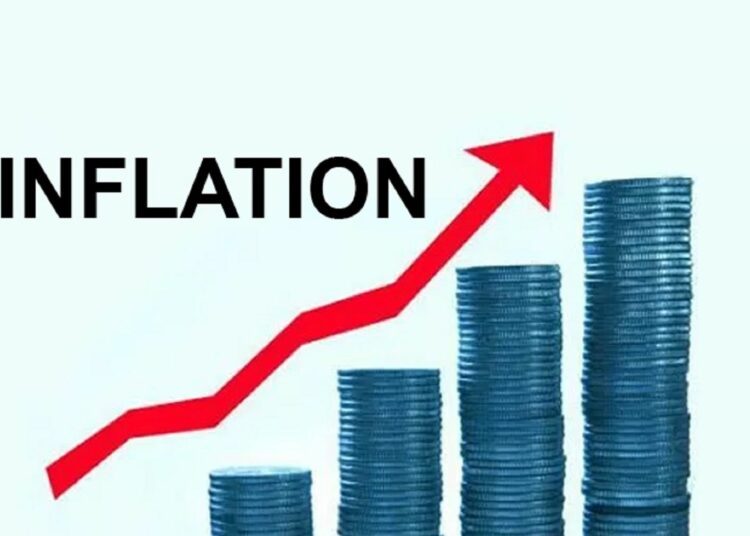Inflationary pressures from all-time high commodity price hikes across the country have pushed up Nigeria’s headline inflation rate to a record 33.20 percent as of last month despite the recent strengthening the naira.
This will be the 15th consecutive monthly increase. February 2024 headline inflation rate was 31.70 per cent, according to the nation’s statistics bureau.
Food inflation also maintained a steady rise, reaching 40.01 per cent in March 2024 on a year-on-year basis. This is 15.56 percent higher compared to the rate recorded in March 2023 (24.45 per cent) and 37.90 per cent recorded in February 2024.
The figure that was released by the National Bureau of Statistics on Monday showed that the March 2024 headline inflation rate showed an increase of 1.50 percent points when compared to the February 2024 headline inflation rate.
From 300 per cent price hikes in gasoline caused by subsidy removal, nationwide insecurity that has cut farming activities to the barest minimum, and devaluation of the local currency, the economy has witnessed a significant downturn amidst economic hardship that has eroded people’s purchasing power.
On a year-on-year basis, the headline inflation rate was 11.16 per cent points higher compared to the rate recorded in March 2023, which was 22.04 per cent. This shows that the headline inflation rate (year-on-year basis) increased in March 2024 when compared to the same month in the preceding year (March 2023).
On a month-on-month basis, the headline inflation rate in March 2024 was 3.02 per cent, which was 0.10 per cent lower than the rate recorded in February 2024 (3.12 per cent).
In March 2024, the food inflation rate in Nigeria surged to 40.01 per cent on a year-on-year basis, marking a significant increase of 15.56 per cent points compared to March 2023, when it stood at 24.45 per cent.
This rise was primarily driven by price hikes in essential food items such as garri, millet, akpu (uncooked fufu), bread and cereals, yam, fish, beef, oil and beverages.
On a month-on-month basis, the food inflation rate for March 2024 witnessed a slight decline to 3.62 per cent, showing a 0.17 per cent decrease from February 2024’s rate of 3.79 per cent.
The average annual rate of food inflation for the 12 months ending March 2024 was 31.40 percent, indicating an 8.69 percentage points’ increase from the previous twelve-month average recorded in March 2023, which stood at 22.72 percent. This data underscores the persistent challenges facing consumers in Nigeria, as the high food inflation rate continues to erode purchasing power, impacting the overall cost of living.
Urban inflation rate was 3.17 percent in March 2024, a marginal drop compared to February 2024 rate of 3.17 percent. The corresponding 12-month average for the Urban inflation rate was 28.96 per cent in March 2024, 7.96 per cent points higher compared to the 21 per cent reported in March 2023.











